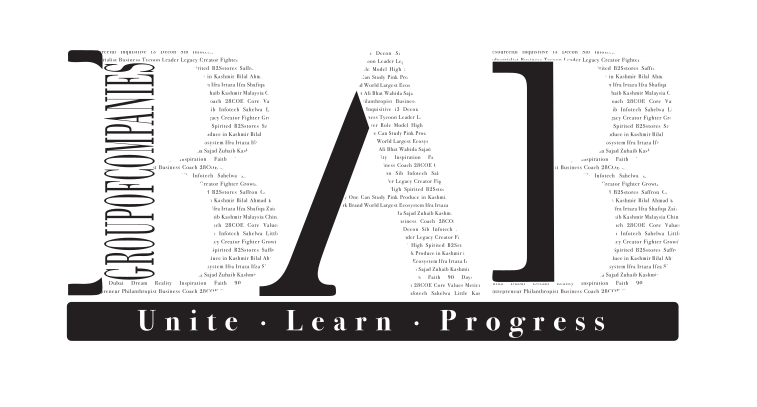Organizational culture is often described as the DNA of a company. It encompasses the values, beliefs, behaviors, and norms that shape the working environment and influence how employees interact, perform, and contribute to the organization’s goals. A positive and well-defined organizational culture can lead to higher levels of employee performance and satisfaction, while a toxic or misaligned culture can result in disengagement, high turnover, and underperformance. This article explores the profound impact of organizational culture on employee performance and satisfaction, offering actionable insights for business leaders seeking to foster a thriving workplace.
Understanding Organizational Culture
Organizational culture is the collective behavior of individuals within an organization, shaped by shared values, traditions, rituals, and expectations. It is the unwritten code that guides employees in their interactions, decision-making, and overall approach to work. A strong organizational culture aligns with the company’s mission and vision, providing a sense of identity and purpose for employees.
Key elements of organizational culture include:
- Values and Beliefs: The core principles that guide decision-making and behavior within the organization. These can include values like integrity, innovation, teamwork, and customer focus.
- Norms and Practices: The unwritten rules and routines that govern how employees interact with each other and approach their work. This includes communication styles, dress codes, and approaches to problem-solving.
- Symbols and Artifacts: Physical or symbolic representations of the organization’s culture, such as logos, office layout, and company rituals or events.
- Leadership and Management Style: The way leaders and managers influence and reinforce the culture through their actions, decisions, and communication.
The Impact of Organizational Culture on Employee Performance
Organizational culture plays a crucial role in shaping employee performance. When employees are aligned with the company’s culture, they are more likely to be motivated, engaged, and productive. Here’s how a strong organizational culture can enhance employee performance:
- Enhanced Motivation and Engagement: A positive culture that aligns with employees’ values and provides them with a sense of purpose can significantly boost motivation and engagement. When employees feel that their work is meaningful and that they are part of a supportive community, they are more likely to go above and beyond in their roles.
- Increased Collaboration and Teamwork: A culture that promotes collaboration and open communication fosters a sense of camaraderie among employees. When teamwork is encouraged and valued, employees are more likely to share ideas, support each other, and work together towards common goals, leading to better performance outcomes.
- Improved Employee Retention: A strong organizational culture can enhance employee loyalty and reduce turnover. When employees feel valued, respected, and aligned with the company’s mission, they are more likely to stay with the organization long-term, reducing the costs and disruptions associated with high turnover.
- Higher Productivity and Innovation: A culture that encourages continuous learning, experimentation, and innovation empowers employees to take risks and think creatively. This leads to higher levels of productivity and innovation, as employees feel safe to propose new ideas and solutions without fear of failure.
- Clear Expectations and Accountability: A well-defined culture provides employees with clear expectations regarding their roles and responsibilities. When employees understand what is expected of them and are held accountable for their performance, they are more likely to meet or exceed those expectations.
The Impact of Organizational Culture on Employee Satisfaction
Employee satisfaction is closely linked to organizational culture. A positive culture that meets employees’ needs and expectations can lead to higher levels of job satisfaction, while a negative culture can result in dissatisfaction and disengagement. Here’s how organizational culture influences employee satisfaction:
- Sense of Belonging and Inclusion: A culture that promotes diversity, equity, and inclusion fosters a sense of belonging among employees. When employees feel included and valued for their unique contributions, they are more likely to experience job satisfaction and take pride in their work.
- Work-Life Balance and Well-being: A culture that prioritizes work-life balance and employee well-being contributes to overall job satisfaction. Companies that offer flexible work arrangements, wellness programs, and support for mental health create a positive work environment where employees can thrive both personally and professionally.
- Recognition and Rewards: A culture that recognizes and rewards employees for their hard work and achievements boosts morale and satisfaction. Regular feedback, recognition programs, and opportunities for career advancement show employees that their efforts are appreciated and valued.
- Trust and Psychological Safety: A culture that promotes trust and psychological safety enables employees to express themselves freely, share their ideas, and take risks without fear of judgment or retribution. When employees feel safe and supported, they are more likely to experience job satisfaction and contribute to the organization’s success.
- Alignment with Personal Values: Employees are more satisfied when their personal values align with the organization’s culture. When there is a strong alignment between an employee’s beliefs and the company’s mission, they are more likely to feel fulfilled and motivated in their work.
Actionable Steps to Cultivate a Positive Organizational Culture
Creating and maintaining a positive organizational culture requires intentional effort and commitment from leadership. Here are some actionable steps to cultivate a culture that enhances employee performance and satisfaction:
- Define and Communicate Core Values: Clearly define the organization’s core values and ensure they are communicated consistently across all levels of the company. These values should guide decision-making, behavior, and interactions within the organization.
- Lead by Example: Leadership plays a critical role in shaping organizational culture. Leaders should model the desired behaviors and values, demonstrating a commitment to the culture they want to cultivate.
- Foster Open Communication: Encourage open and transparent communication across the organization. Create channels for employees to voice their opinions, share ideas, and provide feedback without fear of repercussions.
- Recognize and Reward Positive Behavior: Implement recognition and reward programs that celebrate employees who embody the company’s values and contribute to a positive culture. Regularly acknowledge and celebrate achievements, both big and small.
- Invest in Employee Development: Provide opportunities for continuous learning and development. Offer training, mentorship, and career advancement opportunities that enable employees to grow and succeed within the organization.
- Prioritize Work-Life Balance: Create policies and programs that support work-life balance and employee well-being. Offer flexible work arrangements, mental health resources, and initiatives that promote physical and emotional health.
- Promote Inclusivity and Diversity: Foster an inclusive culture that values diversity and ensures that all employees feel respected and valued. Implement diversity and inclusion initiatives that promote equity and fairness in the workplace.
- Regularly Assess and Improve Culture: Continuously assess the organization’s culture through employee surveys, feedback, and performance metrics. Use this data to identify areas for improvement and make necessary adjustments to strengthen the culture.
Conclusion
Organizational culture is a powerful force that can significantly impact employee performance and satisfaction. By cultivating a positive and inclusive culture that aligns with the organization’s values and mission, leaders can create an environment where employees are motivated, engaged, and committed to achieving the company’s goals.Dr. Bilal Ahmad Bhat, Founder & CEO of the BAB Group Of Companies, emphasizes the importance of investing in organizational culture as a key driver of business success. As businesses continue to navigate the complexities of the modern workplace, a strong and positive culture will remain essential to fostering high-performing teams and achieving long-term success

